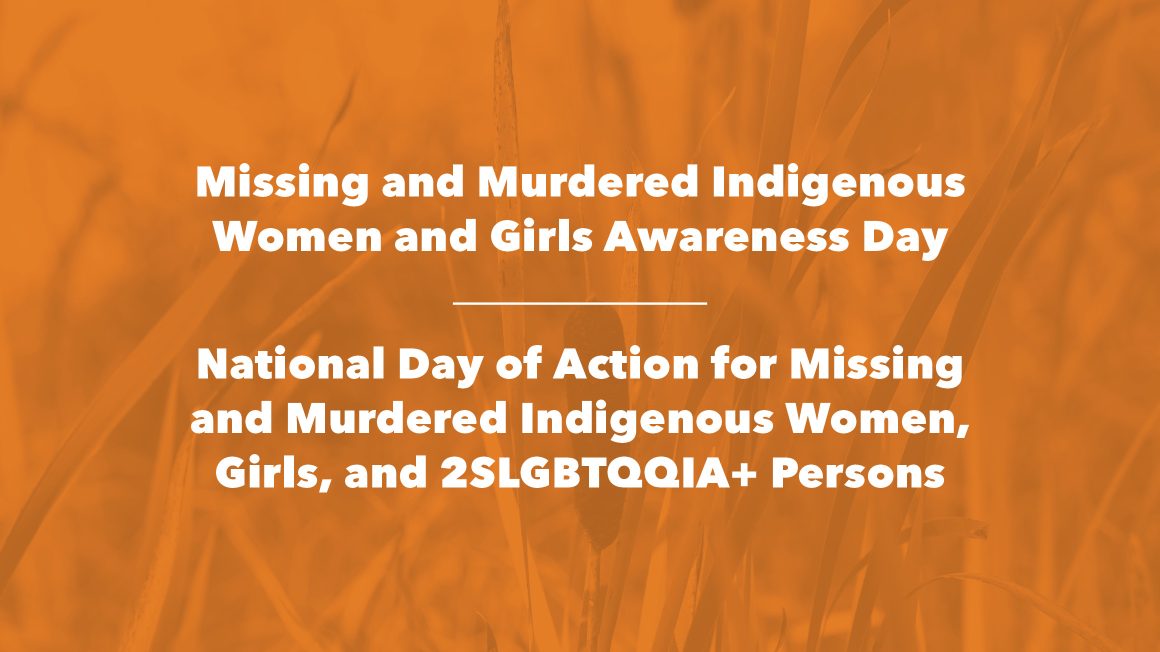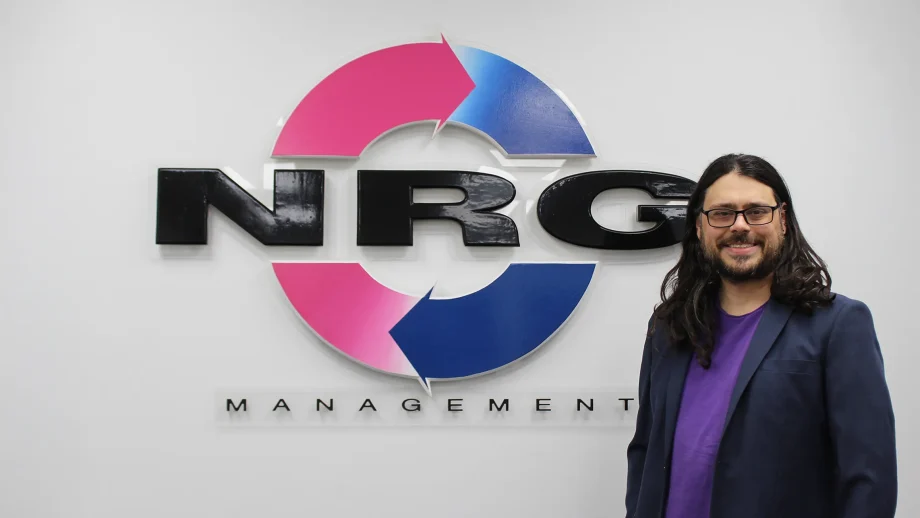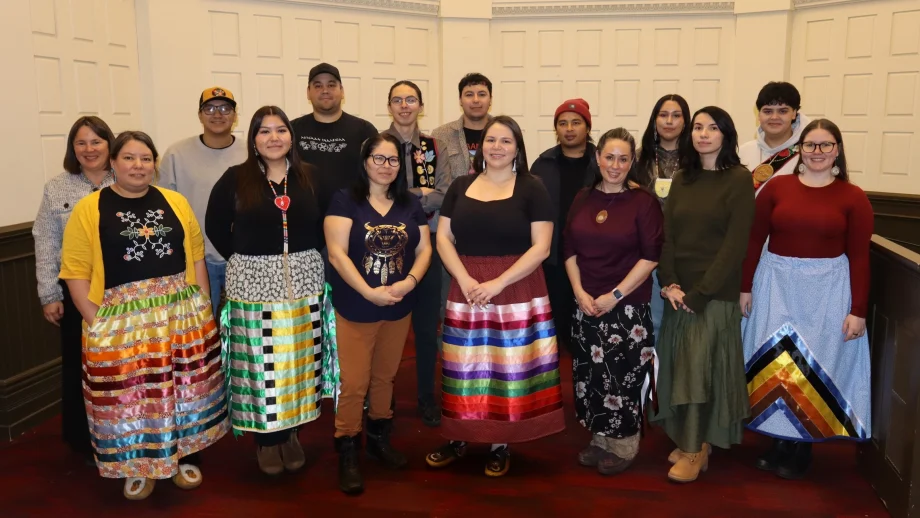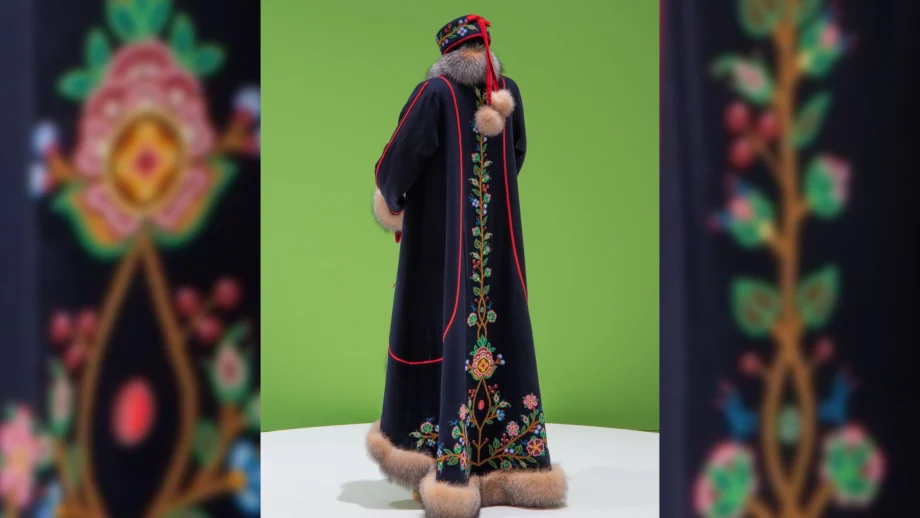October 4 is Manitoba’s Missing and Murdered Indigenous Women and Girls Awareness Day and the National Day of Action for Missing and Murdered Indigenous Women, Girls, and 2SLGBTQQIA+ Persons.
The University is committed to the ongoing work of ensuring Indigenous knowledges and perspectives are honoured, and to participating in reconciliation.
On this day, we grieve and remember the lives of Indigenous women, girls, and gender diverse people who disappear and are murdered at extremely disproportionate rates. Our thoughts are also with the loved ones of all Missing and Murdered Indigenous Women, Girls, and 2SLGBTQQIA+ Persons.
“On the National Day of Action for Missing and Murdered Indigenous Women, Girls, and 2SLGBTQIA+, we recognize mothers, sisters, daughters, kokums, aunties, cousins, gender-diverse relatives, and friends,” said Dr. Chantal Fiola, Associate Vice-President, Indigenous. “We honour the work of the National Inquiry, the communities in mourning, and the families that continue to search for their loved ones. This day is a reminder of our collective responsibility to act. Read the calls for justice, attend a community gathering, and reflect.”
Local events
Join the Selkirk Friendship Centre, at 73 Hargrave Street, for a MMIWG2S+ Healing and Wellness Walk, from 6:00 – 9:00 p.m. on October 4. There will be a presentation and documentary screening by MMIWG2S+ Manitoba Coalition, with a smudge and vigil walk to the waterfront for a cleansing ceremony. Soup, bannock, and supports will be provided after the walk. All community members are welcome. Please wear red shirts, ribbon skirts, or ribbon shirts.
Attend Vision to Reality – Conversations on establishing a Red Dress Alert in Manitoba, hosted by Giganawenimaanaanig MMIWG2S+ Implementation Committee at Canad Inns Club Regent from 8:30 a.m. – 4:00 p.m. on October 4. The goal of this day will be to expand awareness of the Red Dress Alert and what the Red Dress Alert may look like when it becomes operational in Manitoba. The Red Dress Alert contributes to a decrease in violence against Indigenous women, girls, and 2SLGBTQI+ people by:
- Enhancing Safety in communities
- Responding to incidences of violence against MMIWG2S+ relatives that are inclusive of wrap-around support
- Raising public awareness of MMIWG2S+ people
Emotional and mental health supports
We encourage you to care for yourself and your loved ones today, lean into your personal support systems, and to access the resources in your community or those listed below if you need additional help.
- Phone: 1-844-413-6649 – the Missing and Murdered Indigenous Women and Girls Crisis line is toll free and available 24/7. Service is available in English, French, Cree, Anishinaabemowin(Ojibway) and Inuktitut.
- If you have questions about your missing and murdered loved ones, Family Information Liaison Units (FILU) members work directly with families to gather information from government services and agencies, such as child protection, polices services and coroner’s offices, to address outstanding questions about the loss of their loved ones. For more information about the services they offer or to find a contact near you, visit the FILU webpage on the Department of Justice website.
- Manitoba Family Violence Shelters and Supports (PDF)
- Ka Ni Kanichihk – Missing Persons and Persons at Risk Toolkit and Medicine Bear Counselling, Support & Elder Services Program
- Ma Mawi Wi Chi Itata Centre’s Spirit of Peace Program
- Manitoba Keewatinowi Okimakanak Inc.’s Missing and Murdered Indigenous Women and Girls Liaison Unit and MMIWG Wellness Tools
- Phone or chat online with the Hope for Wellness Helpline, available to all Indigenous people across Canada.
- Access after-care supports for survivors, family members and those affected by the issue of missing and murdered Indigenous women and girls.
Take action
The Calls for Justice from the National Inquiry into Missing and Murdered Indigenous Women and Girls provide specific actions that all Canadians can take to make change. We encourage you to read the calls to all Canadians and consider what steps you can take to implement each of these Calls.
From the Calls for Justice:
As the Final Report has shown, and within every encounter, each person has a role to play in order to combat violence against Indigenous women, girls, and 2SLGBTQQIA people. Beyond those Calls aimed at governments or at specific industries or service providers, we encourage every Canadian to consider how they can give life to these Calls for Justice.
We call on all Canadians to:
- Denounce and speak out against violence against Indigenous women, girls, and 2SLGBTQQIA people.
- Decolonize by learning the true history of Canada and Indigenous history in your local area. Learn about and celebrate Indigenous Peoples’ history, cultures, pride, and diversity, acknowledging the land you live on and its importance to local Indigenous communities, both historically and today.
- Develop knowledge and read the Final Report. Listen to the truths shared, and acknowledge the burden of these human and Indigenous rights violations, and how they impact Indigenous women, girls, and 2SLGBTQQIA people today.
- Using what you have learned and some of the resources suggested, become a strong ally. Being a strong ally involves more than just tolerance; it means actively working to break down barriers and to support others in every relationship and encounter in which you participate.
- Confront and speak out against racism, sexism, ignorance, homophobia, and transphobia, and teach or encourage others to do the same, wherever it occurs: in your home, in your workplace, or in social settings.
- Protect, support, and promote the safety of women, girls, and 2SLGBTQQIA people by acknowledging and respecting the value of every person and every community, as well as the right of Indigenous women, girls, and 2SLGBTQQIA people to generate their own, self-determined solutions.
- Create time and space for relationships based on respect as human beings, supporting and embracing differences with kindness, love, and respect. Learn about Indigenous principles of relationship specific to those Nations or communities in your local area and work, and put them into practice in all of your relationships with Indigenous Peoples.
- Help hold all governments accountable to act on the Calls for Justice, and to implement them according to the important principles we set out.
Learn more
Transcripts, testimonies, and public statements offered during the TruthGathering Process.
Resources for Allyship
How to be an effective ally to Indigenous communities – Guidelines for Allyship – APTN
Indigenous Ally Toolkit – Montreal Indigenous Community Network





